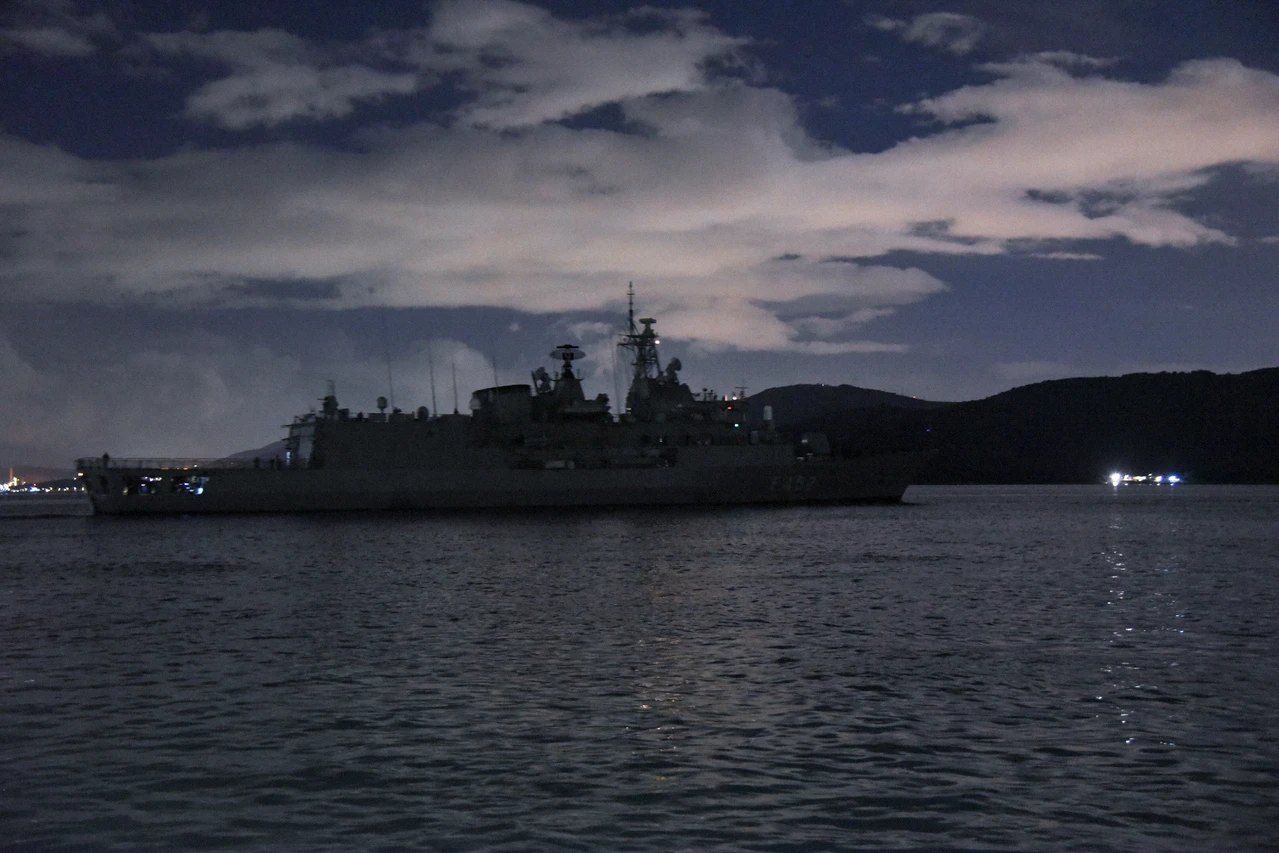Greek Navy’s frigate HYDRA ends mission early due to technological shortcomings
 The Greek frigate 'Hydra' sails to take part in the EU naval mission in the Red Sea, at Salamina naval base, Greece, February 26, 2024. (Reuters)
The Greek frigate 'Hydra' sails to take part in the EU naval mission in the Red Sea, at Salamina naval base, Greece, February 26, 2024. (Reuters)
The European Union’s mission Aspides in the Red Sea, involving the Greek Navy’s frigate HYDRA, is reported to have ended one month earlier than planned due to technological deficiencies.
According to a report by the Greek news portal ieidiseis.gr, based on testimony from the frigate’s crew, some members described the mission in the Red Sea as a “suicide mission.”
The report stated that the Greek Navy’s HYDRA frigate, a MEKO-class ship, was vulnerable to attacks by the Houthis in the Red Sea. This vulnerability was due to the frigate’s age and lack of modern upgrades. The report also specifically highlighted the HYDRA’s inadequate defenses against unmanned aerial vehicles (UAVs).
UAVs and helicopters avoided taking off from the frigate during the mission.
The frigate’s “outdated” Phalanx close-in weapon system proved insufficient against Houthi UAVs flying above it.
The report mentioned that on May 19, while escorting a commercial ship in the Gulf of Aden, a missile from the Houthis exploded just 150 meters away from the frigate, attributed to the inadequate reflexes of the Operations Center in Larisa during critical moments.
According to the crew, NATO’s Larisa Operations Center informed them of the missile launch one minute after the explosion, which caused large waves and intense shaking. Following this incident, 10 crew members requested to return to Greece while the frigate was sailing in Djibouti.
HYDRA returned to Greece in early June despite expectations that it would complete its mission by the end of July.
MEKO-class frigates like HYDRA and SPARA have old and outdated technologies. While there are state-of-the-art floating units in the region, these frigates have systems that cannot respond to modern threats. Greek frigates face a more serious threat from ballistic and anti-ship missiles launched by the Houthis. Unlike similar-aged warships, Greek MEKOs (HYDRA, PSARA, SPETSAI, SALAMIS) are completing their 30-year service without modernization.
Greece is known for allocating the lowest share of its defense spending budget among NATO members for maintenance, repairs, and infrastructure, leading to a lower level of readiness for war.



